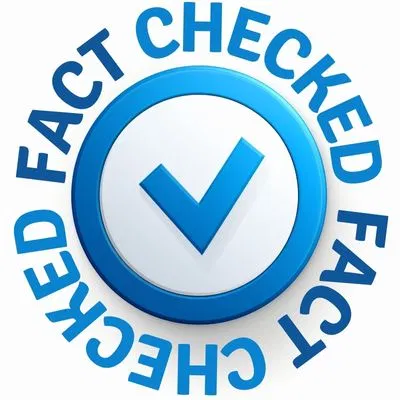What is FBCLID? Should You Remove It From Google Analytics?

Published February 27, 2025
If you use Google Analytics, you might see a query parameter called FBCLID in your URLs. FBCLID stands for Facebook Click Identifier. It’s added to URLs when someone clicks a link on Facebook. Many website owners wonder if it affects their analytics data or if it should be removed. This article explains what FBCLID is, why it’s used, how it impacts your data, and if you should remove it.
What is FBCLID?
FBCLID (Facebook Click Identifier) is added to URLs when you click links on Facebook. It helps Facebook track clicks and measure traffic. If you’ve seen FBCLID in URLs, it’s used for ad tracking. While helpful for advertisers, it can clutter analytics and create duplicate URLs in Google Analytics.

How does FBCLID work?
When someone clicks a Facebook link, a query parameter called FBCLID is added to the URL. But what is it for? The FBCLID (Facebook Click Identifier) tracks user clicks on Facebook links. It connects the traffic source to the user and the ad or post they clicked.
When users visit your website, Google Analytics records the FBCLID as referral data and attributes the visit to Facebook. This helps advertisers track how well their Facebook campaigns are doing. However, for website owners, the FBCLID can clutter reports by creating many URL versions for the same page, making data harder to analyze.
Effects of FBCLID in Google Analytics
The FBCLID parameter in your URLs can impact your Google Analytics data both positively and negatively.
On the positive side, it helps track Facebook user activity and provides useful insights into ad performance. This data shows which campaigns bring the most traffic and conversions, helping advertisers improve their strategies.
However, the FBCLID can cause problems. It creates multiple URLs for the same page, cluttering your Google Analytics reports. This makes tracking user behavior harder and inflates page views. It can also make it tough to see which traffic source drives the most conversions.
If your reports are messy, removing the FBCLID from URLs can make your data clearer while keeping important Facebook campaign info.

Should You Remove FBCLID from Google Analytics?
Now that you understand what FBCLID is and what FBCLID in URL tracking entails, you might wonder: should you remove it from your Google Analytics data? The answer depends on your analytics goals and traffic sources.
If you rely heavily on Facebook ads for driving website traffic, keeping the FBCLID parameter can be beneficial. It enables more accurate tracking of ad performance and user interactions, helping you optimize your Facebook marketing campaigns.
However, if your website receives traffic from various sources, the FBCLID in URL may clutter your Google Analytics reports by generating multiple URL variations for the same page. In such cases, learning how to remove FBCLID from url parameters can improve data clarity, making it easier to analyze overall traffic and user behavior.
Ultimately, the choice to remove FBCLID should balance the need for detailed Facebook campaign tracking to maintain clean, easily interpretable analytics data.
How to Remove FBCLID
Wondering how to remove FBCLID from URL in your analytics data? Removing the FBCLID parameter from URLs is essential for keeping your Google Analytics reports clean and ensuring accurate data tracking. Below are effective methods to eliminate FBCLID in URL tracking issues:
Method 1: Remove FBCLID via Google Analytics Settings
- Log in to your Google Analytics account.
- Navigate to the Admin section at the bottom left of the dashboard.
- Under the View column, click View Settings.
- Scroll to the Exclude URL Query Parameters field.
- Enter FBCLID (without quotes) into the text box.
- Click Save to apply the changes.
Method 2: Remove FBCLID Using Google Tag Manager
- In your Google Tag Manager (GTM) account, navigate to Variables.
- Create a new URL Variable with the query parameter exclusion set to FBCLID.
- Update your tags to reference the clean URL variable.
Method 3: Server-Side Solutions (.htaccess or NGINX Configurations)
You can use simple code in your server settings to remove the FBCLID parameter from URLs on the server side. For Apache servers, add a rule in the .htaccess file to detect and remove FBCLID from URLs. For NGINX servers, update the configuration to strip the parameter, keeping URLs clean and analytics data accurate.
Final Thoughts
The FBCLID parameter tracks clicks from Facebook links, helping advertisers measure campaign success. However, it can clutter data in Google Analytics. Knowing what is FBCLID and how to remove FBCLID from URL helps keep analytics clean. Excluding it improves accuracy, ensuring reports reflect true user behavior across traffic sources.
Hire The Digital Marketing Experts
We take online businesses and turn them into online empires by employing smart digital marketing strategies. Our team of experts are trained in a myriad of marketing skill including SEO to help you rank higher in search results, and ad management to ensure your message gets seen by the people you want. Need a business website that attracts business? We also specialize in website design and online sales optimization to help your business grow like never before.

This Content Has Been Reviewed For Accuracy By Experts
Our internal team of experts has fact-checked this content. Learn more about the editorial standard for our website here.

About The Author
Rei Bayucca has a wealth of knowledge and experience as a professional writer for multiple industries. It is her mission to ensure that her readers receive high-quality, informative content that is both entertaining and educational. Through her writing, Rei aims to educate and motivate readers.




